In the woods you happen across a clearing full of strangely beautiful people. At first you think they may be human, but upon closer examination you discover that their features are too fair and perfect to have come from mortal man. You walk into the clearing to get a better look and introduce yourself, but happen to step inside a ring of mushrooms and flattened grass. Their expressions quickly turn from curiosity to wrathful anger.
Suddenly you begin to feel ill. You reach out to apologize and explain your actions, but they are already disappearing into the depths of the forest. It is too late. As punishment for your offense, you have been elf-shot.
What is an Elf?
An elf is a mythical creature that appears to be human in nature, but has magical powers and does not age (or at least ages very slowly). It appears that elves have their origins in Germanic lore, but they are also commonly found in other European folklore.
The elves are seen as a ‘luminous’ group of people who are known to have fair complexions far more perfect than even the most beautiful human features. They are sometimes known as ‘the white people.’ It is thought that this is either a reference to their pure morality or, perhaps as a reference to their beauty and pale features.
Elves were seen as both a point of fear and curiosity in early societies. They were often known to be sociable and even friendly to humans, but they were still greatly feared because of their temper. If they perceived a human to have harmed or offended them in any way, they were quick to retaliate with a punishment. Common punishments included illness, night terrors, and cruel tricks and attacks directed towards the victim. It is noted, however, that the elves did sometimes help cure sicknesses in some instances.
Elves and Birth
The elves are a curious legend indeed. Although they are thought to never age (or to live for hundreds of years depending on which storyline you follow), the elves were thought to need human assistance to bring their children into the world. This help was often thought to be needed from mid-wives who could safely deliver the children and from wet-nurses. While midwives have a pattern of being married to preachers, the wet-nurses were normally women who had recently given birth. This caused great fear in many early European households.
While both of these groups of women had something to fear from traveling to the Elven world, the wet-nurses were especially terrified of their fate. They were normally taken from their newborns and families to the Elven world to take care of the newborn Elf babies. While this doesn’t seem to be nefarious, it would have been frightening for any woman who was put in this situation. It was rumored that eating any food offered in the Elven world or taking any hospitality from them would keep a person from ever returning to the human world. It is unclear if these rules held to the wet-nurses – who obviously had to spend a prolonged period of time in their world, but the fear of being barred from returning to their families would have been enough to give them great fright.
It was also common for midwives to be called upon to help bring elven babies into the world. It is unknown why a midwife was needed, but it was common knowledge at the time that a human midwife was needed to deliver a elf child. Usually, a midwife who was married to a preacher was called upon to perform the necessary duties. It was important that the midwife who was called did not eat or drink while in the Elf world for the above reasons. Some stories say that the midwives (who usually had time to prepare unlike the kidnapped wet-nurses) would sometimes pack food and water to take with them so that they could keep themselves from becoming hungry. There are several tales of midwives being summoned that were widely accepted in their day.
Peter Rahm’s Wife is Summoned
A clergyman by the name of Peter Rahm was known to have told a tale of his wife being summoned to help a mythical being give birth. She went with the creature and performed her duties. After the child was born, the grateful couple offered the midwife food and drink. She kindly refused. They offered her other forms of hospitality which she refused as well. She was sent on her way and returned home. The next day she found a pile of silver pieces – a gift from the new parents for delivering their child.
A Danish Story of An Elf and his Earthwife
A Danish tale tells of an Earthman (an elf) who sought the help of a midwife on Christmas Eve. He took the midwife underground and had her attend to his Earthwife during labor. When the child was delivered, the elven husband took the child away – seeking to steal the good fortune of a newly wed couple for the child. While he was gone, the elf wife gave the midwife a warning. She warned the woman against eating any food or taking any drink while she was under the surface of the earth. She told the midwife that she too had been a Christian woman before she was invited into the realm of the elves but had made the mistake of eating their food while she visited. Because she had accepted their hospitality, she was unable to return to her own world. When the husband returned, the midwife refused the offers of hospitality. Because of this, she was allowed to return to her home.
Elves and Their Relationships with Humans
While there seemed to be a great many ways that elves could threaten the safety of a human being, there were some elves who lived in peace with humans and even formed relationships with them.
While there are some accounts of elves who tried to seduce humans into having sexual relations with them, it appears that there were some humans and elves who had children consensually. These children were known to be especially beautiful and often went on to do great things.
More often than not, half-elf half-human children appeared to be human in their features (though they were often very beautiful) and were capable of great magic feats. They sometimes went on to become magicians, sorcerers, and healers.
There are several ballads and stories concerning elves who mate with humans. They usually involve some sort of riddle that the person must solve in order to become their lover. Some stories also require the character to rescue a human-turned-elf in order to win their lover’s hand in marriage.
The Elfin Knight
The Elfin Knight is a story that can be told in two manners. The first is that the knight threatens to steal a woman away to be his lover unless she can complete an impossible task. The second is that a woman must complete an impossible task in order to win the Knight’s hand in marriage. Over time, the second has become more popular.
The tale starts with the Knight blowing into a magic horn that causes desire to emerge in the heart of the maiden. She makes a wish that she could marry the Knight. Suddenly the Elfin Knight appears and tells her that he will marry her if she can perform several tasks – all impossible.
In return, the maiden responds with several impossible tasks of her own that the Knight must complete and wins the hand of Knight in marriage.
The Tale of Tam Lin
The tale of Tam Lin begins with a warning that Tam Lin is an elf who takes a possession or the virginity of any maiden that travels through the forest of Carterhaugh. One day, a young woman travels through the forest of Carterhaugh and plucks a double rose from the ground. Tam Lin appears and asks her why she has entered his forest and taken his possessions. She replies that Caterhaugh belongs to her – it was a gift from her father. The young maiden goes on her way, only to discover later that she had become pregnant.
She returns to the forest and plucks another set of roses from the ground. Tam Lin appears again to challenge her actions. She asks him if he had ever been a human, or if he has always been an elf. He tells the maiden that he had once been a mortal but was captured by the Queen of Fairies and turned into an elf. He also reveals that he is afraid that he will be sacrificed in a tithe to Hell this year if she does not save him.
Together they devise a plan to rescue Tam Lin from the Fairy Queen. They enact the plan and the maiden wins the love of Tam Lin. The Queen of Fairies acknowledges her defeat and releases Tam Lin.
Lady Isabel and the Elf Knight
Unfortunately, not all relationships between elves and humans end well. The tale of Lady Isabel and the Elf Knight starts the same as ‘The Elfin Knight’ with the Knight blowing into a horn that causes desire to arise in the heart of Lady Isabel. She wishes that she could marry the Knight and he appears and tells her that she will be his wife if she will come with him to the greenwood.
Upon arriving at the greenwood, Lady Isabel is shocked when the Knight reveals that he has killed the daughters of seven kings to steal their treasures and possessions and intends to make her the eighth. Fortunately, Lady Isabel is a quick thinker and tells the Knight to put his head on her knee to rest together before she is to die. She then lulls him to sleep with a charm, binds him with his own belt, and kills him.
What Do Elves Look Like?
The majority of elves that are described in folklore are female, though there were certainly male elves as well. The description of an elf’s appearance varies depending on the time period and the location that the story takes place in. It appears that the majority of female elves are known to be fair creatures. They often have blonde hair and blue or grey eyes (these are also the features that they value in humans) and are known to have characteristics that are similar to humans but much more perfect in nature. There are, of course, some variations in their appearance. These characteristics however, are the most commonly used in fairy tales.
Male elves were often described as looking like old men, though this is not the case for all the elves that appeared in literature. There are also extremely handsome elves that appear and seduce women like the elves from Tam Lin and The Elfin Knight.
Most literature will describe elves as being human in shape and size. They are known to have especially fair features and are sometimes described as being even taller than the average human. Writers in Shakespeare’s time however, took a different approach in describing elves. They were transformed into tiny beings who often had wings and were surprisingly similar to fairies. This version of elf was known to enjoy playing tricks on humans.
Modern literature tends to take a blended perspective on elves. While you can still find the occasional reference to elves being small beings, there are also plenty of storylines that present elves as being roughly human-sized.
Where Do Elves Live?
The majority of storylines will claim that elves either inhabit homes that are deep inside the woods, carved into hollowed trees, or underneath the earth (often in a hill). This was fairly standard for the majority of supernatural creatures in early Europe.
Most people have lost their faith in the existence of the elves, but there still remains a large population who maintain their beliefs – or are at least open to the possibility – of the existence of elves in Iceland. The people of Iceland have taken special precautions to ensure that the homes of their beloved huldufolk are protected in modern day.
The Huldufolk Stop Construction Near Alftanes
In the Alfantes peninsula, road work has been proposed in an area that was thought to be frequented by the elves of Iceland. There were many protests against the construction on the grounds that it would ruin the habitat of the elves as well as the natural landscape. The protest caused the entire project to be halted until the Supreme Court of Iceland rules on the case.
This is not an isolated occurrence. Other roads that were proposed to be built in areas where elves were thought to live were stopped by strange equipment malfunctions or tools suddenly being stolen from the worksite. Some think that these incidents were caused by elves themselves.
Interestingly enough, a law was passed in 2012 forbidding construction in any area that was believed to be inhabited by elves or was culturally or historically significant otherwise to Iceland.
Dangers Posed by Elves
Elves and Sickness
Elves were often thought to be the cause of many sicknesses that could not be diagnosed or properly treated by a doctor. It was thought that elves were capable of living parallel to the human world (though invisible to the human eye) and would make a person sick if they felt offended by the individual. This was said to be accomplished in several ways. Sometimes a person became sick if an elf casted a spell over them. Other times, however, an elf could shoot a man with an invisible arrow that carried sickness. Therefore, it was not uncommon for people to be diagnosed as being ‘elf-shot’ when they were ill.
Elves were also thought to bring about other misfortunes that were connected with health – specifically sleeping. The German word Alpdruck means ‘nightmare’, but the literal translation means ‘elf oppression.’ From this, it can be assumed that elves were thought to be the cause of nightmares and night terrors – likely as a punishment for an offense that had been made towards them or as a cruel joke.
Curiously, it seems that elves were often blamed when an individual became afflicted with epilepsy. This is possibly because of the complicated nature of the illness and the lack of medical resources available to treat such an ailment.
Elves and Alchemy
Elves were known to be magical beings, so it is no surprise that they were often credited with several types of magic. There are many different types of magic credited to elves, but one of the most popular by today’s standards was alchemy.
Alchemy was a scientific and philosophical practice that was aimed at purifying different elements. One of the most popular types of alchemy recognized by humans was the practice of taking an earth element (usually some type of metal) and attempting to transform it into a precious metal like silver or gold.
The elfin tie to alchemy is likely why there are so many stories that reference an elf giving a human something that appeared to be worthless (like charcoal) that had magically transformed into gold by the time they had returned home.
Elves and Seduction
Another common threat that elves were thought to hold over humans was seduction. For some reason, elves had many desires to lure humans into sexual relations with them and were often warned against in tales.
Some elves were recorded to be very forceful with this desire. At some point, the notion arose that male elves would force themselves on women while they were sleeping. This issue was reported in the Scottish witch trials, and the elves in the tales were interpreted as being an alias for the Devil himself.
Elves and Changelings
Curiously enough, it was thought that elves sometimes valued human babies over their own kind. There was much speculation for why this may be, but there were two main theories. The first was that the elves were fond of the human babies that they stole because of their fair hair and blue or grey eyes. The second was that the children were stolen to use in a tithe to Hell so that the elves would not have to sacrifice one of their own. Regardless of what their motivation was, human parents came to dread the thought of losing their child to the elves.
It was thought that when an elf came to steal away a child, it left one of it’s own in place of the stolen infant. This elf child was known as a ‘changeling.’ These infants appeared to be human, but were often afflicted with unexplained illnesses. To discover a changeling in place of a human baby was a serious situation. Often, due to the many issues that came with changelings and their noticeable need to eat more than a human baby, changelings were killed before they had a chance to reach early childhood. It was thought that to let the changeling live was to put the resources of the entire family in jeopardy, making infanticide the best option for the unlucky couple.
Origin of the Elf Myth
Arisen from Cain’s Murder of Able
Some sources seem to think that the elves may have arisen from Cain’s murder of Able. This is the case in Beowulf, which clearly states that elves came to be a race because of this unfortunate event.
Semi-Banished Angels
Other sources seem to think that elves may have been the angels who chose to stay neutral in the fight for Heaven with God facing off against Lucifer. They were banished from Heaven because they did not help God, but because they did not betray him they were not sentenced to Hell. Instead, they were banished to Earth, where they would be come to known as elves.
Lost Children Of Eve
An old Icelandic tale suggests that elves could be the lost children of Eve. The tale states that one day when God was walking through the Garden of Eden, Eve was embarrassed that her children were dirty. She told them to go and hide from God so that she would not have to be embarrassed by God seeing them in their condition.
When God walked up to Eve and asked her where her children were, she lied and said she didn’t know. Angry that she would dare to lie to him, God said, “That which man hides from God, God will hide from man.” From that day forward, Eve never saw her children again.
The tale goes on to suggest that the children became the huldufolk (the hidden people [elves]) of Iceland.
Reborn into Elves
The Germanic tales which are thought to inspire the first stories of the elves suggest that these beings could be created by the rebirth of the dead. The old Norse texts seem to imply that worship of the elves and worship of dead ancestors are one and the same. This suggests that a person can be reborn into a supernatural creature like the elf when they pass on to the afterlife.
Evidence of this belief can be found in tales like ‘The Saga of Olaf the Holy’ in which the king’s ancestor has a burial mound that is marked as ‘Olaf, the Elf of Geirstad.’ This reflects the belief that the king’s ancestor became an elf in the afterlife.
The Explanation of Strange Occurrences
Last but not least, it is certainly possible that elves were simply created as a way to explain the unexplainable at the time. This is evidenced by some of the most common events that were blamed on elves – like elf-locks (when a strand of hair was found to be knotted).
This would have also helped people to reconcile with unfortunate events like the birth of a deformed baby. It certainly would have been easier to dispose of a child that put the new family at risk if it was thought to be an elf changeling instead of their own offspring.
Elf
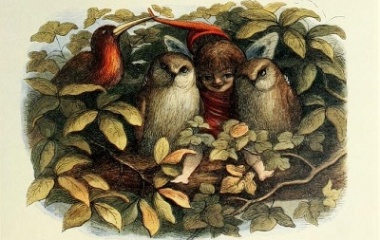
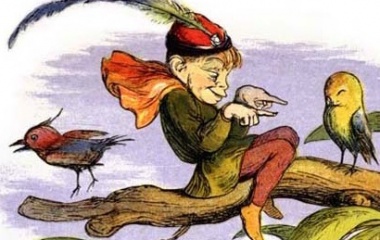
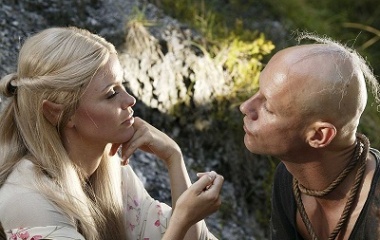



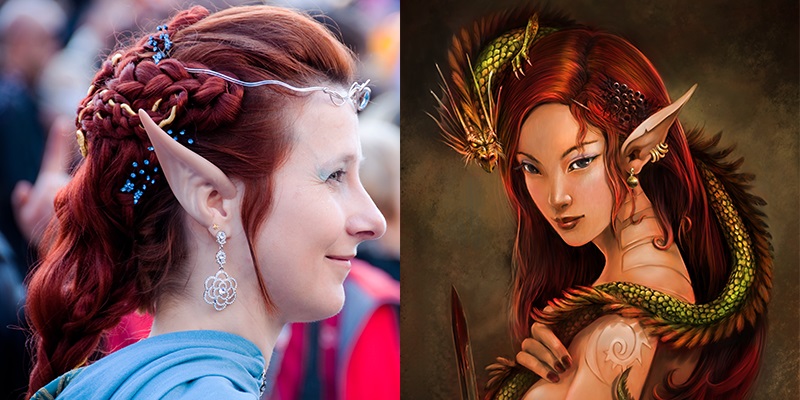
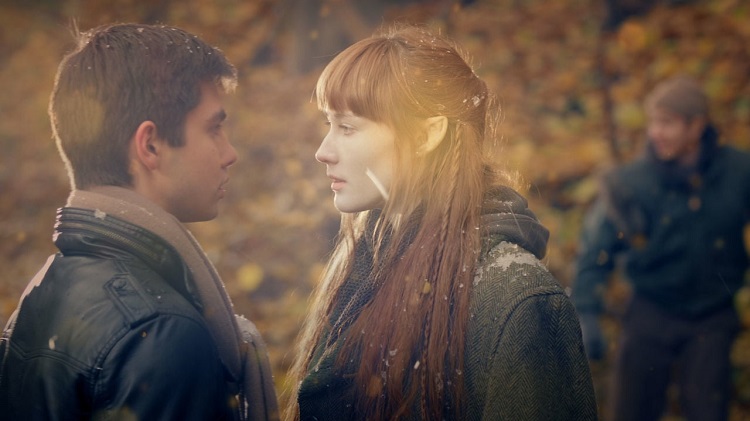
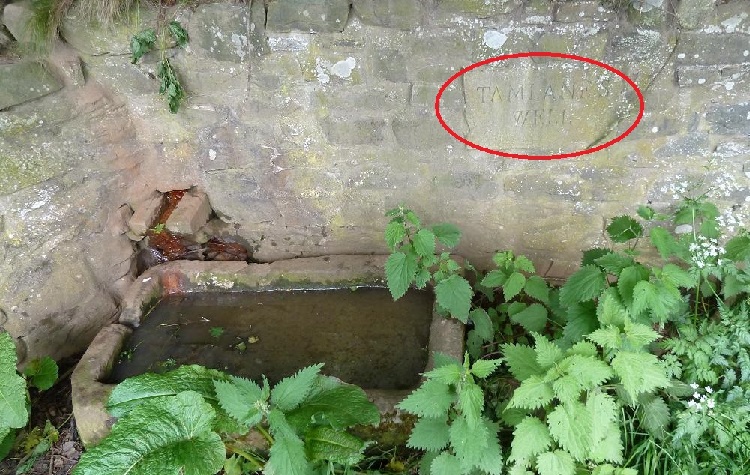
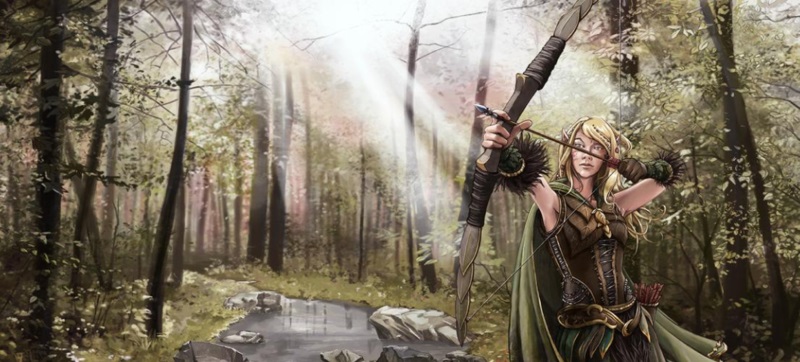
No comments:
Post a Comment